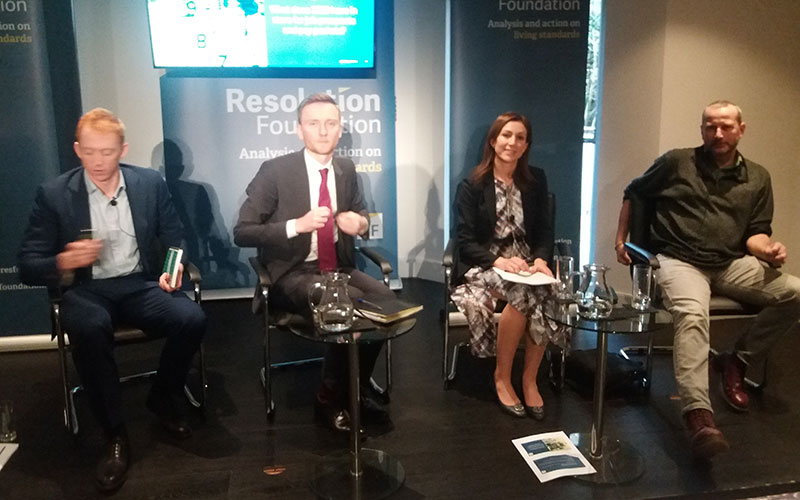Retail jobs will be ‘hit hard’ following minimum wage increases

Employment and jobs in the retail sector will be hit particularly hard by April’s rise in the National Living Wage and the National Minimum Wage, with young people affected the most.
Leading academic Paul Gregg (pictured right), professor of economic and social policy at the University of Bath, and a panel member at a Resolution Foundation event in London this morning, said the rises, which take the NLW for workers aged 25 and over to £8.72 an hour “will be a big shock to people who are already vulnerable”.
He said the retail sector, which was already having a difficult time, would be hit particularly hard by the additional cost of hiring staff. Another sector that would be hard hit would be the hospitality sector. Young people, he added, tend to start in these sectors and then migrate across to other industries.
The NLW, which applies to workers over the age of 25, is set to rise on 1 April from to £8.21 an hour to £8.72. At the same time the NMW is due to increase from £7.70 an hour to £8.20 for those aged 21-24, £6.15 to £6.45 for those aged 18-20, and from £3.90 to £4.15 for apprentices.
The new rates are in line with former chancellor George Osborne’s ambition of the NLW reaching 60% of UK median earnings by 2020.
Torsten Bell (pictured second left), CEO of the Resolution Foundation, who chaired the event, agreed that younger workers were at greatest risk from the rises, due to employers possibly reducing hiring as a result of increased costs. However, he said the effects would not be obvious immediately, but will become apparent “over the next few years”.
Fellow panellist and member of the Monetary Policy Committee Silvana Tenreyro (pictured second right) said research on the effect of the NLW was that overall “it didn’t really affect employment”. However, if it did turn out that April’s rises were to have a negative effect on jobs it could be adjusted in the future.
Nye Cominetti (pictured left), an economic analyst at the Resolution Foundation, said research showed previous minimum wage increase hadn’t had any discernible effects. However, he warned: “The higher the increase, the more there is the potential for negative effects.”
• Comment below on this story. You can also tweet us to tell us your thoughts or share this story with a friend. Our editorial email is [email protected]




